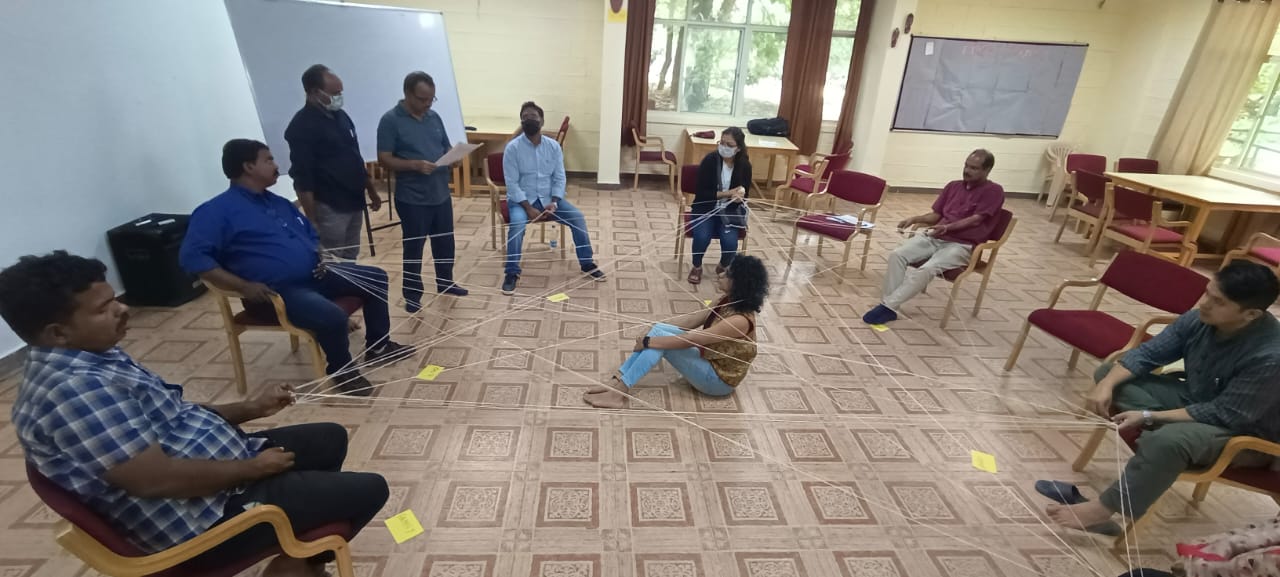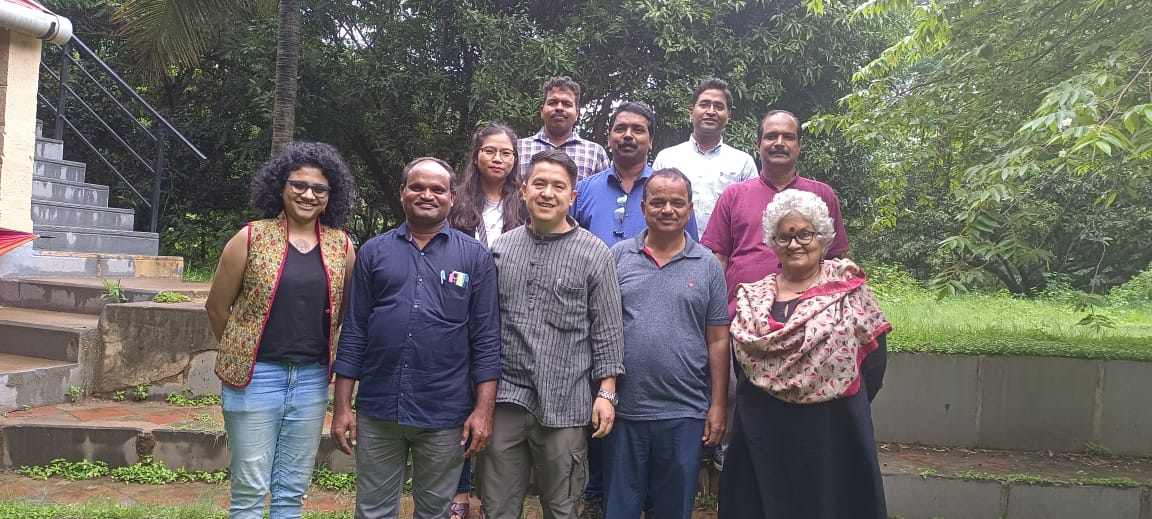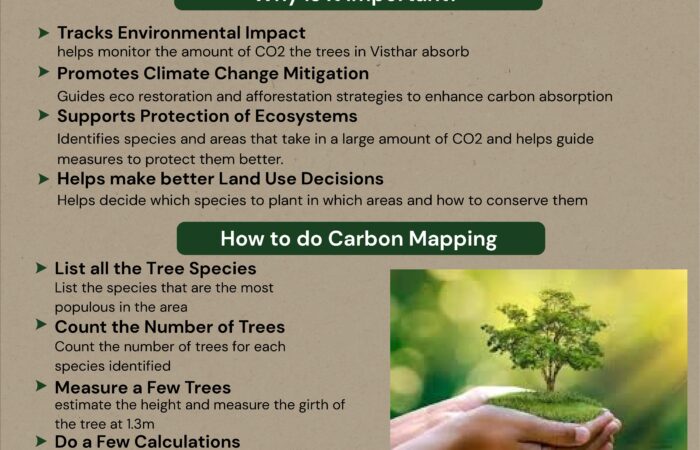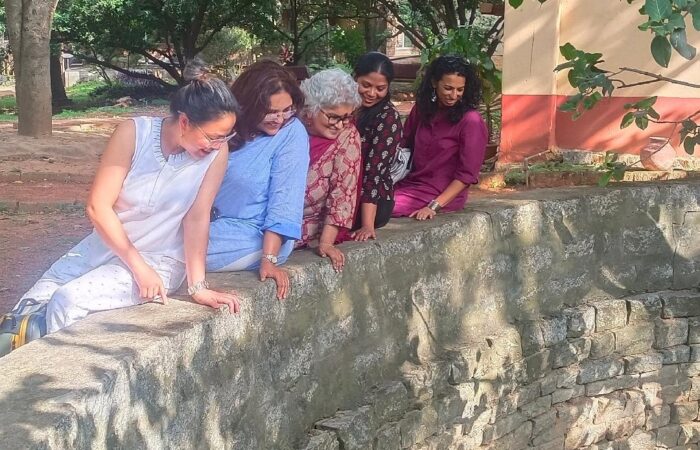Visthar held the second part of the inter-modular Training of Trainers (ToT) residential workshop for KIA partners themed Gender Responsive Planning, Monitoring and Evaluation on its Bengaluru campus from July 24 – July 26.
About the workshop
The ToT programme aims to facilitate creative gender sensitisation; train in-house staff on gender-responsive planning, monitoring and evaluation; and develop gender-responsive indicators for programmes. The programme comprised two three-day modules with a gap of a few months. The Perspective Development Module to strengthen perspectives on gender, intersectionality, and gender-responsive indicators was held in April this year. The Facilitation Skills Development Module to practice leading sessions and getting feedback from peers was held this month.
Since the last workshop, our participants had got a chance to implement their gender sensitisation learnings within their projects. We spoke to the participants about their field experiences to get a sense of the takeaway.
Participant experiences
Harshan is from the Evangelical Fellowship of India Commission on Relief (EFICOR), an organisation engaged in disaster response management, risk reduction, sustainable development and capacity-building. He is involved in eight Telangana and Tamil Nadu programmes and works with youth development projects. Says he, “Now when we form CBOs we see to it that we have equal participation of women and men in the group. We focus on gender issues and try to understand the problems of women.” Harshan feels that he has learnt to develop gender-responsive indicators after attending the workshop: “We need to mainstream gender in all our projects. And now we have the indicators that make our work more defined.”
MV Foundation (MVF) works towards eradicating child labour and promoting child education. Rajendra Prasad of MVF works in Bihar and Telengana. He says his organisation wants to create child labour-free zones. “Our work also involves working for the rights of the girl child and this workshop has equipped me with gender-sensitive tools. Now I have a better idea of how to make parents and the school authorities responsive to girls attending school and not being forced to do housework. Like her brother, she too should get leisure time,” says he. Their project has successfully formed school management communities and that thought process has been given seed. The girls have been encouraged to report any instance of discrimination by school authorities or outsiders.
CNI Synodical Board of Social Services (SBSS) works in India’s villages to empower rural communities so that they can form self-sustaining ecosystems. The organisation is active in Punjab, West Bengal, Jharkhand, Orissa and Maharashtra. Mayank Thomas of CNI SBSS says that since they work on livelihood, food security and nutrition, gender rights are cross-cutting across these issues. “We have to know how to mainstream gender concerns. The workshop is helping me understand exactly how to be gender inclusive in cross-cutting themes. We can see our projects with a gender lens and weed out from the start what could be counter-productive to gender equality,” says he.
Strengthening marginalised communities and promoting sustainable development is the aim of CASA (Churches Auxiliary for Social Action). Benny Joseph of CASA works in Kodaikanal in child welfare and education programmes. “We are dealing with tribal and Dalit parents and stakeholders who need to be gender sensitised. We have to educate them about the rights of the girl child in an acceptable and non-offensive way. This workshop is helping me learn how to do gender-based planning for our projects. When I return, I will be sharing my learning with colleagues across the south zone,” says Benny.
Priscilla Centre is a charitable organisation working towards empowering women in Assam, Arunachal Pradesh, Manipur, Meghalaya and Nagaland by providing them training in tailoring, weaving, and food processing. Merina who works in Guwahati says, “Now I have understood how gender sensitisation is involved in every project. I will focus on these indicators more. Initially, my understanding of gender issues was superficial but now it is more in-depth.”
The mission of CARDS (Community and Rural Development Society) is to liberate Dalits from discrimination and oppression. Nageshwar Rao of CARDS works on child rights and education in Guntur and Balabate. Says he, “I understand how important it is for women to participate in community building but now I also know how they can do so. I have learnt about gender mainstreaming tools that will help me in my work.”
HIMSERVE works in the area of rural development and poverty alleviation. Amardeep Rana from HIMSERVE stresses that the organisation has a “holistic approach.” He works in the north of West Bengal. Says he, “I work in education. So I need to facilitate club leaders, teachers and villagers who are the stakeholders. For this, it is important to gender sensitise the participants and also for me to have an understanding of gender focus.”
Social Awareness and Voluntary Education (SAVE) works for the elimination of child labour, empowerment of women and youth, promotion of fair labour standards, and the development of both rural and urban poor. Sritharan of SAVE, is based in Tripura, Tamil Nadu, where he works with garment manufacturing units. “Compared to my earlier knowledge I have learnt to create more gender–based indices. I am collecting a database that is gender sensitive. Our gender approach has changed and we are getting more responsive compared to before,” says he.
The workshop was facilitated by Roshen Chandran, Mercy Kappen and Raaj Nimbale from Visthar.






